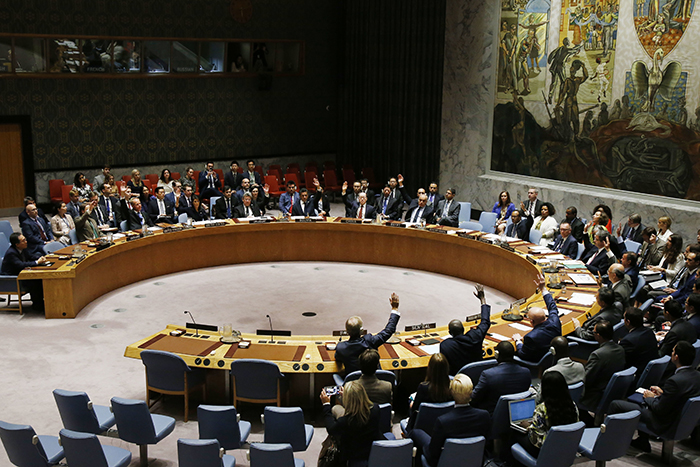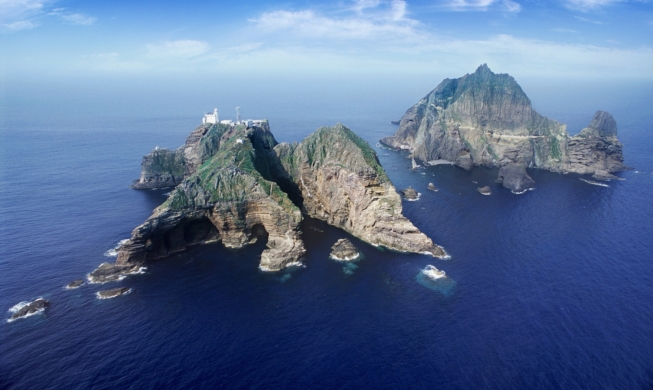
The U.N. Security Council on Sept. 11 adopted a new resolution for sanctions against North Korea, during its meeting at U.N. headquarters in New York. The newly adopted resolution focuses on imposing caps on oil imports into North Korea and a ban on textile exports. (Yonhap News)
By Yoon Sojung
On Sept. 11, the U.N. Security Council adopted a new resolution for sanctions against North Korea, after Pyongyang’s recent sixth nuclear weapons test.
The council unanimously passed Resolution No. 2375 that's mainly about reducing the supply of oil flowing into North Korea. It also introduces a ban on North Korean textile exports and a ban on U.N. member-states from providing work visas for North Korean workers.
The new resolution contains a limit on North Korea's oil imports for the first time.
It limits the crude oil inflow into North Korea at 4 million barrels, and petroleum products at 2 million barrels, almost half the existing flow. The new resolution also introduces a full ban on the supply of condensates and natural gas liquids to North Korea. The new resolution prohibits all joint ventures or cooperative entities, or expanding existing joint ventures, with North Korean entities or individuals.
Regarding the latest U.N. Security Council resolution, Cheong Wa Dae spokesperson Park Soo-hyun said on Sept. 12 that, “This new resolution means empathy and the full support of the international community, showing that much stronger sanctions are needed than the previous Resolution No. 2371 adopted in regard to the North’s nuclear missile tests.”
“North Korea should not intend to test the determined will of the international community anymore," said the presidential spokesperson.
“The North should realize the fact on its own that its reckless challenge to world peace will only lead to stronger sanctions from the international community,” he said.
“The only way for Pyongyang to get out from diplomatic isolation and economic pressure is to join the table for talks for a complete, irreversible and verifiable dismantlement of its nuclear weapons program,” said the Cheong Wa Dae spokesperson.
arete@korea.kr
Most popular
- Grammy-winning producer calls Suga of BTS 'amazing artist'
- 'Universal love, family' themes fuel success of 'King of Kings': director
- Council sets minimum hourly wage in 2026 at KRW 10,320
- Expansion of foreign app system raises tourist convenience
- Nat'l population diversity rose nearly 8% from 2018-22: study
